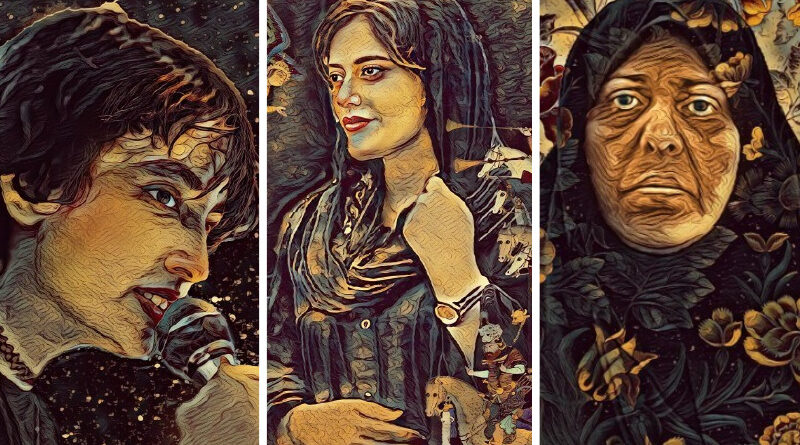The International Bar Association’s Human Rights Institute (IBAHRI) condemns the mass use of the death penalty in the Islamic Republic of Iran and calls for respect to the fundamental right to life and to uphold fair trial rights and due process in the country.
According to the United Nations, Iran executed at least 419 individuals in the first seven months of 2023 – a 30 per cent increase compared to the same period last year. As of 30 November 2023, the death penalty has been used against at least 707 people this year, 2023, demonstrating an alarming and significant increase in the executions carried out by the Iranian authorities.
IBAHRI Co-Chair Anne Ramberg Dr Jur hc commented: ‘The IBAHRI condemns the mass application of the death penalty in Iran and urges the Iranian authorities to end the practice of judicial executions. The IBAHRI calls on the authorities to immediately release all arbitrarily arrested protestors and human rights defenders – including lawyers – to uphold the independence of the legal profession, to ensure the right to a fair trial of all accused and introduce an immediate moratorium on the death penalty with a view to abolition. We are deeply concerned that most defendants before the Revolutionary Courts lack legal representation during their proceedings. The IBAHRI calls on Iran’s authorities to halt the denial of access to adequate legal representation and to introduce a moratorium on all planned executions.’
According to monitoring and reports by Iranian human rights groups, the number of executions has unprecedentedly surged in Iran since the Hamas attacks on Israel on 7 October 2023 and the subsequent war in Gaza, with at least 176 people executed, including women and children. The Iranian authorities have been asked to release official figures regarding the number of executions carried out since 7 October, to which there has been no response. There is concern that the actual number of executions may be higher.
It has been reported that within a 24-hour period in the final week of November 2023, the authorities executed 7 prisoners, who were tried before the Tehran Revolutionary Court on vague charges including ‘action against national security’, ‘propaganda against the system’, ‘membership in Salafist groups’ and ‘corruption on Earth’.
The Iranian authorities have been recently accused by rights groups and the families of those executed of using the diverted international focus on the war in Gaza as a cover to exact revenge on dissidents and to execute people without due judicial process.
The Iranian authorities have also been accused of conducting unfair trials and carrying out death sentences in secret, without access to legal representation for the accused and without informing family members.
At the 78th Session of the UN General Assembly in September 2023, UN Secretary-General António Guterres reported on the serious human rights situation in Iran, specifically commenting on the execution of seven men for their participation in the mass protests between December 2022 and May 2023. According to Guterres, information received by the UN Office of the High Commissioner for Human Rights (OHCHR) noted that all seven cases ‘consistently indicated that the judicial proceedings did not fulfil the requirements for due process and a fair trial under international human rights law. Access to adequate and timely legal representation was frequently denied, with reports of coerced confessions, which may have been obtained as a result of torture’.
After the death of a 22-year-old woman, Mahsa Amini, on 16 September 2022 in the custody of the Iranian morality police, widespread protests broke out across the country. It has been well documented that the Iranian authorities responded with force, often lethal, and have frequently used the death penalty as a tool of repression to create fear among protestors and dissidents, acting with impunity.
On 22 November 2023, 22-year-old Milad Zohrevand was reportedly the eighth person to be executed in the context of the September 2022 protests. The UN OHCHR subsequently released a statement to ‘deplore’ the executions by Iranian authorities and ‘urge[d] the Iranian Government to immediately halt the application of the death penalty and establish a moratorium on its use’. The statement noted that ‘[a]vailable information indicates that his trial lacked the basic requirements for due process under international human rights law. There are also troubling reports that Zohrevand’s parents were arrested following his execution’.
The IBAHRI is further concerned at the application of the death penalty against juveniles. It has been reported that since 2010, at least 68 individuals below the age of 18 have been executed in the country. The November 2023 OHCHR statement also focused on the execution of a 17-year-old child, Hamidreza Azari, executed in Sabzevar Prison on 24 November 2023, who had given a forced confession for a murder accusation. He was 16 at the time of the alleged crime of murder; however, in the state media report, his age was given as 18.
In addition, Iranian authorities also disproportionally execute individuals charged with drug-related crimes, which do not meet the threshold of ‘the most serious crimes’ required under international law. According to November 2023 data, drug-related crimes accounted for the highest number of executions at 46 per cent (56 cases). Other charges included murder (53 cases), political and religious activism (11 cases), rape (1 case) and armed robbery (1 case). UN Secretary General Guterres noted that 239 people — more than half of those executed in the seven-month period between 1 January 2023 and 31 July 2023 — were reportedly put to death for drug-related offences, a 98 per cent increase from the same period last year.
IBAHRI Co-Chair Mark Stephens CBE commented: ‘The IBAHRI is outraged by the secret execution of protestor Milad Zohrevand, who was denied a fair trial. Also, Iran’s use of the death penalty against juveniles and authorities’ apparent efforts to conceal the real age of executed children, as in the case of 17-year-old Hamidreza Azari, is highly alarming. The IBAHRI opposes and condemns the death penalty without exception and urges the Islamic Republic of Iran to adhere to international human rights law, standards and norms, and to immediately halt all executions.’
To the limited extent that the death penalty is permitted under international law, Article 6(2) of the International Covenant on Civil and Political Rights(ICCPR) requires that it be reserved for ‘the most serious crimes’. In its General Comment No. 36 (2018), the UN Human Rights Committee has held that this term must be read restrictively, relating only to crimes of extreme gravity involving intentional killing. Acts that do not result directly and intentionally in death, such as those of a political nature and drug-related offences, cannot serve as the basis for the death penalty. Additionally, under Article 6(5), the ICCPR and Article 37(a) of the UN Convention on the Rights of the Child, death sentences shall not be imposed for crimes committed by persons under 18 years old.
Furthermore, the UN Special Rapporteur on extra-judicial, summary or arbitrary executions, Morris Tidball-Binz, and the UN Special Rapporteur on Torture and other Cruel, Inhuman or Degrading Treatment or Punishment, Alice Jill Edwards, have argued that ‘although international law permits the death penalty in very limited circumstances, in practice it is almost impossible for states to impose the death penalty while complying with human rights obligations, including the absolute and universal prohibition of torture’.
- Related material:
- On 15 May 2008, the IBAHRI Council adopted its Resolution on the Abolition of the Death Penalty, which considers, inter alia, the clear trend towards viewing the death penalty as a breach of international human rights standards, as well as committing the IBAHRI to actively promoting the abolition of the death penalty.
- Click here to find out more about the IBAHRI’s work on the abolition of the death penalty.
- The International Bar Association’s Human Rights Institute (IBAHRI), established in 1995 under Founding Honorary President Nelson Mandela, is an autonomous entity working to promote, protect and enforce human rights under a just rule of law, and to preserve the independence of the judiciary and the legal profession worldwide.
- Find the IBAHRI on social media here:
For further information, please contact: the IBA Human Rights Institute at IBAHRI@int-bar.org
Image Details:
L to R:
Nika Shakarami – 16-year-old Iranian teenager abducted and died in the detention of security forces.
Mahsa Amini – Mahsa Amini, a 22-year-old Kurdish Iranian woman, was arrested because of an “improper hijab.” The police were accused of beating her and inflicting a fatal head injury; Amini was pronounced dead on September 16, 2022.
Fatema Sepeheri -a prominent opposition figure has been detained by the Islamic regime since September 21, 2022. Her life is in danger.
Image Credits: Sara Shoghi
Illustrator’s Info
Link to her Instagram for further photos: https://www.instagram.com/sarahshoghi/?hl=en
https://sarashoghi.partial.gallery/











